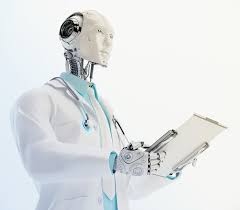Source: telecoms.com
As her EU Presidency comes to an end, Finland is offering the 513 million people living in the European Union a parting / Christmas / New Year gift: the Nordic country is making “Elements of AI”, an online introductory course for non-professionals, freely accessible to everyone in the Union’s 28 member states. The target is for 1% of the total population, or about 5 million people, to take the course by 2021.
The course was jointly developed by the University of Helsinki and the technology consultancy Reaktor. It started as a private initiative by the creators, offered for free to anyone interested. The programme was soon integrated in the country’s “national AI strategy”. The initial target of training 1% of the Finnish population was achieved just over six months after the programme started. Created in English, the course content was later made available in Finnish, which helped accelerate the uptake by more people. Later the content was also made available in Swedish (Finland’s second official language) and Estonian (native language of the largest EU immigration community to Finland). So far more than 220,000 people in over 110 countries have taken the course. “Over 40% of our course takers are women (more than doubling the global Computer Science average) and over 25% are over the age of 45” according to Reaktor.
“As our Presidency ends, we want to offer something concrete. It’s about one of the most pressing challenges facing Europe and Finland today: how to develop our digital literacy,” said Timo Harakka, Minister of Employment. Announced in Brussels recently, the content creators, working with EU partners, are going to translate the course into all the other 20 official languages in the EU. The budget of the project, estimated to run up to EUR 1.7 million ($2 million), will be paid for by the Ministry of Economic Affairs and Employment.
“Our investment has three goals: we want to equip EU citizens with digital skills for the future; we wish to increase practical understanding of what artificial intelligence is; and by doing so, we want to give a boost to the digital leadership of Europe,” Harakka said. “The significance of AI is growing. To make use of it, we need digital skills. Changing labour markets, the transformation of work, digitalisation and intensifying global competition all mean one thing for the EU: we must invest in people. Every EU citizen should have the opportunity to pursue continuous lifelong learning, regardless of age and educational background.”
Teemu Roos, Associate Professor in Computer Science at the University of Helsinki, said, “Our University has a policy of making its research and expertise benefit society at large. As research into artificial intelligence is highly advanced in Finland, it came naturally to us to make AI teaching more widely accessible.” Roos came up with the idea of training AI to all in 2017.
Reaktor shares this view. Megan Schaible, COO of Reaktor Education, wrote in a post that new technologies like AI “can feel like an insider’s club that has left the majority of us behind.” The AI for all initiative is therefore developed to “prove that AI should not be left in the hands of only a few elite coders.”
Other EU leaders may see technologies differently. Ina Schieferdecker, a junior minister in Germany’s Federal Ministry of Education and Research, and a PhD in computer science by training, recently expressed a more elitist view that Europeans do not need to understand AI to trust it.
Among University of Helsinki’s alumni is Linus Torvalds, creator of the Linux operating system.


